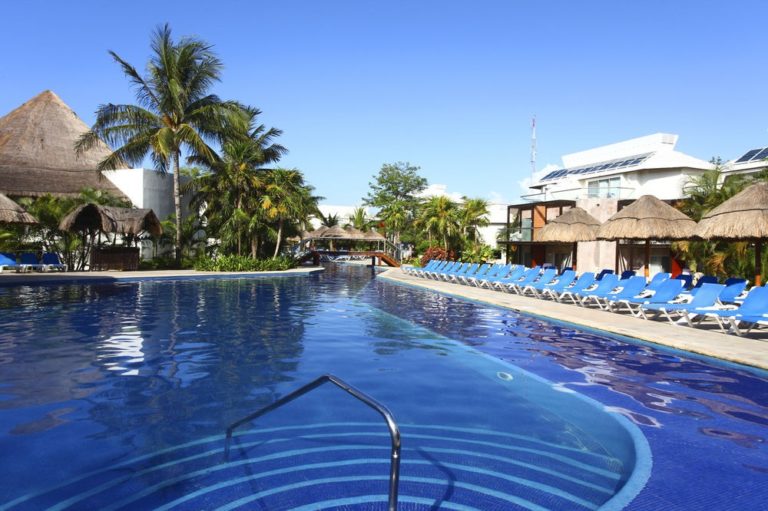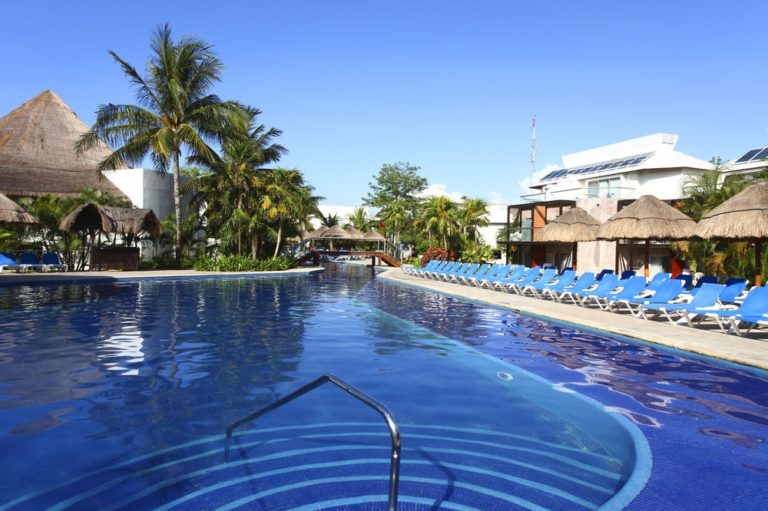Travel is not just about seeing the wonders of the earth but understanding our impact upon it. With increasing frequency, people are looking to make the shift from “tourist” to “conscious traveler” by finding ways to maximize positive impacts on the locations they visit. Making thoughtful choices about how, when, and where you go on a vacation can make a significant difference. So, this Earth Day, travel experts analyzed over eight million traveler reviews from last year to find the key hot spots for eco-travelers.
Delving deep into sentiment, the global data showed the 10 best places to stay around the world, as reviewed by Expedia travelers. From boutiques with beehives and resorts with rainwater recycling, to grand urban retreats with solar cell power, many of these amazing places show that luxury and sustainability are not mutually exclusive.
Additionally, the experts highlighted the top countries with the best reviewed eco-conscious accommodations, with the USA topping the charts.
Top 10 eco-friendly stays
1.Sandos Caracol Eco Resort, Mexico
2.Nomad Hotel Roissy CDG, Paris, France
3.Siloso Beach Resort, Sentosa, Singapore
4.Habitat Suites, Austin, Texas
5.Pakasai Resort, Krabi, Thailand
6.PARKROYAL on Pickering, Singapore
7.The Green House, Bournemouth, UK
8.Listel Hotel, Vancouver, Canada
9.Hotel Verde, Cape Town, South Africa
10.Sherwood Queenstown, Queenstown, New Zealand
Top 10 sustainable countries around the world
1.USA
2.Mexico
3.Canada
4.Australia
5.UK
6.Costa Rica
7.Thailand
8.New Zealand
9.France
10.Italy
Sustainable travel is the perfect opportunity to show Mother Earth and fellow inhabitants how much you care.
1. Sandos Caracol Eco Resort – Playa del Carmen, Mexico
Situated between dense jungle and the blue of the Mexican Caribbean coast, this Rainforest Alliance-certified destination is among the highest-rated by travellers for the multitude of positive impacts it offers.
•Extensive policies governing waste management, resource consumption and natural conservation
•Opportunities for guests to engage in ecologically sustainable practices: eco-tours, cruelty-free animal interactions and beach meditation
•A commitment to the community, reflected in celebrations of local indigenous culture, on-site markets that support local artisans, and local partnerships to improve area schools
2. Nomad Hotel Roissy CDG – Paris, France
Located five minutes by car from Charles de Gaulle airport, the Nomad Hotel Roissy CDG boasts Scandinavian-inspired design, tech-enabled customisable room layouts and a mission to “to reduce the ecological impact of these buildings to a minimum, at every stage of life, from design to operation”—making it the perfect accommodation for digital nomads with green leanings.
•Rigorous standards for creation/loss of heat and a low total annual energy consumption, supported by green (living) exterior cladding, solar panels, air handling units
•Proactive efforts to neutralize water impact through use of rainwater collectors
•Use of sustainable materials, including PEFC wood, carpets made from recycled fishing nets, recycled stone and glass shower units
3. Siloso Beach Resort, Sentosa – Singapore
Just off Singapore’s south coast lies Sentosa Island, a haven whose southwest coast is the home to the Siloso Beach Resort. Steps from the sandy beaches of the South China Sea, this award-winning eco-resort has taken special care to integrate the surrounding habitat into its design by prioritizing open spaces and preserving established natural features like mature trees and flowing springs. The result? A uniquely organic take on a luxurious beach resort experience.
•200 original trees preserved (and 450 planted) on-site; landscape pool fed by underground waters and built according to natural terrain formation
•72% of the resort is open-air—and activities including cycle tours, hikes and other eco-adventures
•Operations keep ecological impacts top-of-mind, emphasizing locally-sourced foods, limited use of plastics, and reduced energy consumption
4. Habitat Suites – Austin, TX, USA
Habitat Suites, a sustainable gem in the heart of Texas’ most progressive city, boasts a 30-year track record of forward-thinking environmental stewardship. Habitat Suites has been a charter member of the Green Hotels Association since 1991—and won an Austin Green Business Leader Gold Award in 2018.
•Widespread use of alternative energy, including solar panels, solar thermal and electric vehicle charging
•On-premises organic fruit and herb gardens; clean, local and organic food options
•Use of plant-based, zero harsh chemical detergents for cleaning; bio-safe guest shampoos and detergents; hypoallergenic suites that include live potted plants and windows that open for access to fresh air
5. Pakasai Resort – Krabi, Thailand
Spa treatments, boxing and cooking classes plus plenty of space for lounging by the pool—the Pakasai Resort delivers on everything you’d expect from a tropical Thai resort, then sweetens the deal with an impressive list of sustainability efforts. “Krabi’s Greenest Resort” was the first in the area to win an ASEAN Green Hotel Award (2014).
•Resource conservation efforts include rainwater capture and greywater recycling, energy efficient lighting, biogas production and reduction of plastic use
GOT NEWS? click here
Google News, Bing News, Yahoo News, 200+ publications
•Careful attention given to reducing carbon emissions through waste minimization program and collaboration with the local community and local organizations
•Guests are encouraged to make their stay even greener by joining the #GreeningPakasai campaign, which incentivizes visitors to make low-carbon choices around food, transportation, linen services and local activities
6. PARKROYAL on Pickering – Singapore
With 15,000 square metres of greenery and a cutting-edge design, the PARKROYAL is equally impressive in what it does and doesn’t do. This LEED-certified masterpiece saves 32.5 Olympic-sized swimming pools’ worth of water annually and could power an estimated 680 households with the energy saved by its conservation efforts.
•Highly regulated resource consumption through employment of light, motion, and rain sensors
•Solar cells and rainwater collection mean zero-energy maintenance of the 15,000 m2 sky gardens
•Thoughtful construction processes reduced concrete (and associated waste and energy expenditure) use by more than 80%
7. The Green House – Bournemouth, UK
Equally suitable for weddings, self-care weekends and romantic getaways, every detail of this eco-hotel has been designed to help guests feel great while doing good. That ethos touches every facet of The Green House, from the building’s renewable energy production and Forest Stewardship certified, UK-crafted furnishings to the on-site restaurant’s adherence to local sourcing and high animal welfare standards—the company car even runs on bio-fuel from the kitchen’s old cooking oil!
•The use of earth-friendly cleaning products and efforts toward energy conservation
•Staff are trained in the ethos of sustainability and are encouraged to find new ways to improve the Green House’s efforts
•Environmental efforts extend to the exterior grounds, including bird and bat boxes (to provide a safe place for breeding) and rooftop beehives that produce honey
8. The Listel Hotel Vancouver – Vancouver, BC, Canada
The Listel Hotel dedicates itself to both environmental responsibility and the arts. The hotel provides a location to elevate local and international artists—including a gallery dedicated to First Nations artists from the Northwest Coast—while participating in the city of Vancouver’s “Corporate Climate Leader” program, setting an example for sustainable tourism efforts across the globe.
•Responsible food practices including membership in Vancouver Aquarium’s Ocean Wise sustainable seafood program and a commitment to offering local and sustainable food and wine
•Conservation efforts including 20 solar panels, a state-of-the-art heat capture program (reducing the hotel’s natural gas use by 30%) and water reduction and air quality programs
•Adherence to a 100% Zero Waste policy since August 2011
9. Hotel Verde – Cape Town, South Africa
“Sustainable by design, stylish by nature” is the modest motto of Cape Town’s Hotel Verde. The first hotel in Africa to offer 100% carbon-neutral accommodation and conferencing, the Cape Town Verde has earned an extensive list of international accolades (LEED Platinum certification and a 6-star rating from the Green Building Council of South Africa) for its extensive adherence to sustainable practices.
•Restoration of the surrounding wetlands now supports indigenous water-wise vegetation and a healthy population of Cape honeybees—as well as an ecotrail, outdoor gym, and eco-pool for visitor use, plus on-site edible food gardens and aquaponics
•Energy efficiencies include photovoltaic panels on the roof and north-facing facades, wind turbines, energy-generating gym equipment and geothermal heat
•Commitment to social responsibility through sustainable procurement practices, waste management and community involvement
10. Sherwood Queenstown – Queenstown, New Zealand
Sustainability and connection with nature are behind every detail you’ll encounter at the Sherwood Queenstown, a boutique hotel perched on three acres of alpine hillside overlooking Lake Wakatipu. The Sherwood operates based on the belief that “a simple respect for nature lies at the heart of any sustainable practice”. The hotel’s orchards and kitchen garden supply its award-winning restaurant; most rooms offer sweeping mountain or lake views, and all are outfitted with South Island wool blankets and locally-sourced beverages. Mornings start with optional yoga sessions, followed by hiking, mountain biking, skiing or snowboarding.
•A focus on materiality selection that integrates the building with the landscape, while employing upcycled fixtures, fittings and furnishings
•Conscious choices about energy generation—the Sherwood is one of the largest private solar installs in New Zealand and currently generates enough electricity to return surplus to the grid
•Selection of food, wine, beer, spirits, and other consumable products that are local, natural, healthy, ethical, seasonal and sustainable in their production and use







